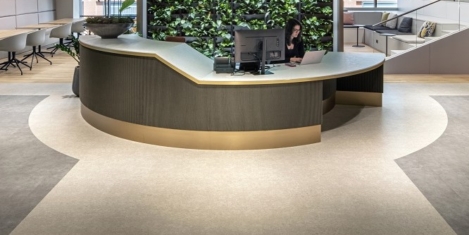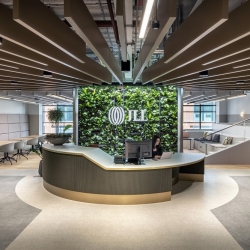To provide the best experiences, we use technologies like cookies to store and/or access device information. Consenting to these technologies will allow us to process data such as browsing behaviour or unique IDs on this site. Not consenting or withdrawing consent, may adversely affect certain features and functions.
The technical storage or access is strictly necessary for the legitimate purpose of enabling the use of a specific service explicitly requested by the subscriber or user, or for the sole purpose of carrying out the transmission of a communication over an electronic communications network.
The technical storage or access is necessary for the legitimate purpose of storing preferences that are not requested by the subscriber or user.
The technical storage or access that is used exclusively for statistical purposes.
The technical storage or access that is used exclusively for anonymous statistical purposes. Without a subpoena, voluntary compliance on the part of your Internet Service Provider, or additional records from a third party, information stored or retrieved for this purpose alone cannot usually be used to identify you.
The technical storage or access is required to create user profiles to send advertising, or to track the user on a website or across several websites for similar marketing purposes.
 HP has announced new findings from its Work Relationship Index, a report that explores employees’ relationships with work around the world. The survey of more than 15,600 respondents across 12 countries, reveals that while the world’s relationship with work is strained and employee expectations are rising, Artificial Intelligence (AI) is seen as a key to unlocking better relationships with work. (more…)
HP has announced new findings from its Work Relationship Index, a report that explores employees’ relationships with work around the world. The survey of more than 15,600 respondents across 12 countries, reveals that while the world’s relationship with work is strained and employee expectations are rising, Artificial Intelligence (AI) is seen as a key to unlocking better relationships with work. (more…)













 Proper management of employee health and wellness is an important facet to consider when striving for success in the workplace. Properly supporting employee health helps them perform better, encourages productivity, prevents losses from absences, enhances job satisfaction, and improves overall morale. Employers can promote employee wellness in different ways, but one area you should consider prioritising is eye care in the workplace.
Proper management of employee health and wellness is an important facet to consider when striving for success in the workplace. Properly supporting employee health helps them perform better, encourages productivity, prevents losses from absences, enhances job satisfaction, and improves overall morale. Employers can promote employee wellness in different ways, but one area you should consider prioritising is eye care in the workplace. 




 A new poll of workplace leaders suggests there is an environment of unconscious fear in modern-day leadership, leading to toxic culture, stunted growth, performance and productivity, and decision inertia. The global study of 2,500 emerging leaders in corporate businesses by consultant
A new poll of workplace leaders suggests there is an environment of unconscious fear in modern-day leadership, leading to toxic culture, stunted growth, performance and productivity, and decision inertia. The global study of 2,500 emerging leaders in corporate businesses by consultant 
 Nothing beats in-person meetings, but tech is vital for hybrid working trust and equality. That is the main conclusion of a new report from
Nothing beats in-person meetings, but tech is vital for hybrid working trust and equality. That is the main conclusion of a new report from 












March 9, 2024
Industry: the art of working from anywhere
by Eugenia Anastassiou • Comment, Everything Omni, Flexible working